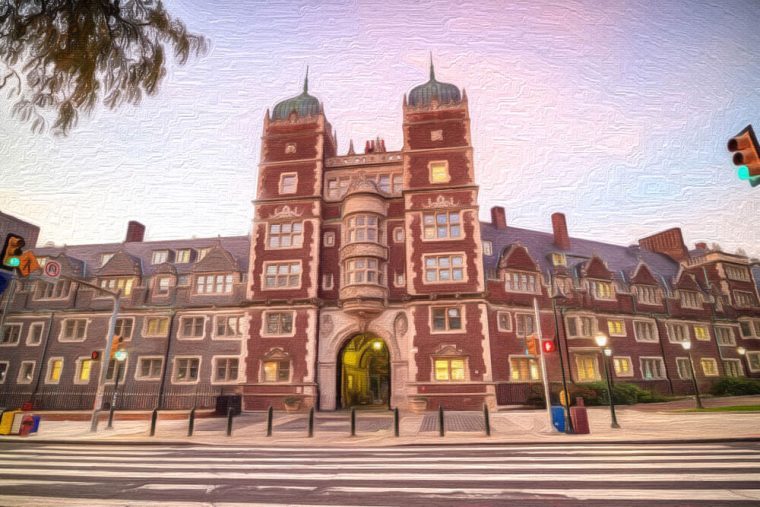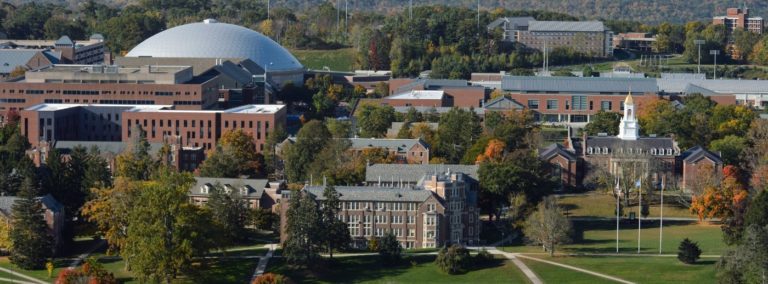| Rank | School | Location |
|---|---|---|
| 1 | Harvard University | Cambridge, Massachusetts |
| 2 | Columbia University In The City Of New York | New York, NY |
| 3 | University of Minnesota-Twin Cities | Minneapolis, Minnesota |
| 4 | University of Pennsylvania | Philadelphia, PA |
| 5 | Ohio State University | Columbus, OH |
| 6 | University of Wisconsin-Madison | Madison, WI |
| 7 | University of Connecticut | Storrs, CT |
| 8 | University of Iowa | Iowa City, IA |
| 9 | Indiana University, Bloomington | Bloomington, IN |
| 10 | Purdue Global | West Lafayette, Indiana |
This is a ranking of the best Masters in Educational Psychology programs in the U.S.
There are also doctoral degree in Educational Psychology program options available for students who want a more advanced degree in Educational Psychology.
We use data from the National Center for Education Statistics, and each college's academic influence in publications in Educational Psychology. This ranking was formed by our machine learning algorithm. It uses a proprietary metric designed for prospective students in masters in Educational Psychology.
This ranking is designed for Educational Psychology master's degree students to make informed college and master's degree decisions.
The relevant master's in Educational Psychology are included in each school's entry for which the schools are ranked. An overview of the master's degree in Educational Psychology programs are given, along with degree details.
Educational Psychology is a field of Psychology that studies how we learn, through psychological study and analyses.
Schools may download our badge.
The Best Master's in Educational Psychology Programs
School Rankings Methodology
The graduate programs in this ranking were selected based on the academic influence of the faculty and alumni in publications and citations in Educational Psychology, and data points from the National Center for Education Statistics. Read more about our ranking process for graduate programs: Ranking Methodology and H-Index.
Harvard University
Cambridge, Massachusetts

The Harvard Graduate School of Education offers:
- Master's degree
- Doctoral degree
- professional education programs
Harvard has one of the best master's in educational psychology.
The School seeks to unearth knowledge and understanding that improves outcomes and opportunity in the field of education. It also trains the leaders who will implement changes from this knowledge. The on-campus experience for this educational program will provide opportunities for:
- educational and psychological research projects
- courses on human learning and early childhood education
- school counseling license
The Master's in Human Development and Psychology program focuses on applied research, an excellent faculty, and a community developing among the students. It is one of the best educational psychology degrees. Students have the chance to participate in internships and fieldwork in a variety of sites, recently including:
- the Children's Hospital
- Boston Medical Center's Child Witness to Violence
- Project Zero
- the Education Development Center
Credit requirements: 32 credits
Selection of required courses:
The generalist strand has no set required core courses; students are required to choose from available options to satisfy the following requirements:
- 1 Developmental Psychology course
- 1 Research Methods and Data Analysis course
- 3 Human Development and Psychology courses
- 3+ Electives
The Child Advocacy strand operates similarly, with 2 required courses as well.
- Child Advocacy Seminar
- Child Advocacy Internship
- 1 Research Methods and Data Analysis course
- 1 Child Development/Risk and Resilience course
- 2 Systems that Impact Children and Families courses
- 3+ Electives
Learning enrollment options: Full-time
Program length: One year
Admission requirements and transfer credit information: Applicants submit an application, resume, statement of purpose, GRE scores, transcripts, and three letters of recommendation.
The Graduate School of Education does not accept credits from other institutions. Students can petition for up to two courses taken through the School before joining a degree program to be applied to their requirements.
Accreditation: The New England Commission of Higher Education provides accreditation to Harvard University.
Columbia University In The City Of New York
New York, NY

The Teachers College at Columbia University holds a firm belief that education in a vacuum is insufficient to effect change. Professors prepare students for their psychology careers.
The Master of Education (M.ED.) in School Psychology: Applied Developmental and Learning Psychology program provides a solid foundation in psychology. It focuses on cognitive psychology. The masters degree in educational psychology prepares students for New York State Certification.
Credit requirements: 69 Points
Selection of required psychology courses:
- Professional and Ethical Foundations of School Psychologists
- Practicum in Psychoeducational Assessment of School Subject Diff.
- Individual Psychology Testing I, II
- Reading Comprehension Strategies and Study Skills
- Therapeutic Interventions for School Psychologists
- Neural Bases for Language and Cognitive Development
- Advanced Practicum in Psychoeducational Interventions in Schools
- Child-adolescent PTSD and related Disorders
- Fieldwork in School Psychological Services
- School Psychologist Internship (full-time)
Learning enrollment options: Full-Time recommended, part-time possible until Internship
Program length: Three Years
Start dates: Fall
Admission requirements and transfer credit information: Potential students will need an accredited bachelor's degree and complete an application and statement of purpose. They will also need to submit two letters of recommendation, a resume, transcripts, GRE scores, and an academic writing sample.
Students may apply to transfer credits that are graduate level. The credit must not be from a previous baccalaureate degree in which the student scored a B or higher. The admissions team does not guarantee credit transfers.
Accreditation: The Master of Education in Applied Developmental and Learning Psychology-School Psychology program receives accreditation from the National Association of School Psychologists.
University of Minnesota-Twin Cities
Department of Educational Psychology
Minneapolis, Minnesota

The Department of Educational Psychology focuses on a well-rounded understanding of education, both as a science and an art as a field.
The Master of Arts in Learning and Cognition prepares researchers with a firm grounding in educational-related functions of psychology. Cognitive development is the cornerstone of the program.
This program from an accredited institution involves classroom learning. There are no online programs for this master's degree in educational psychology.
Credit requirements: 33-34 Credits
Selection of required courses:
- Introductory Statistical Methods
- Principles of Educational and Psychological Measurement
- Personality Development and Socialization
Start dates: Fall
Admission requirements and transfer credit information: Prospective students should have a minimum GPA of 3.00. Applicants submit three letters of recommendation, a statement of goals and interests, official transcripts, and a department-specific application.
Accreditation: The higher Learning Commission provides accreditation to the University of Minnesota.
University of Pennsylvania
Philadelphia, PA

The Graduate School of Education focuses on the symbiosis of research, theory, and practice in all educational fields. The local community in Philadelphia specifically benefits from the academic influence of the School through initiatives derived from research and through the practical involvement of faculty and students.
The MS in Education Executive Program in School and Mental Health Counseling supports currently-working professionals entering the field as counselors. Certification and Licensure preparation is a key part of the program.
Graduates leave the program fully educated in all forms of diversity, social justice, and a person-centered approach to counseling. There is a specific goal of integrating school and mental health counseling to better serve students whose needs overlap the two areas.
After graduating from the master's degree, graduate students will be prepared for such careers as:
- school counselors
- college and career counselors
- mental health counseling professionals
Credit requirements: MS in Education degrees require at least 10 course units.
Selection of required courses: While the University provides no set list of courses for the program, it specifies courses will all be the 500 level or above.
Admissions and transfer credit information: Applicants must submit a resume and statement of purpose, contact information for three individuals who can submit letters of recommendation, official transcripts, and GRE scores in addition to an application and fee.
Accreditation: The Middle States Commission on Higher Education provides the University of Pennsylvania with accreditation.
Ohio State University
Columbus, OH

The Department of Educational Studies focuses on one-on-one mentorship in preparing its students to take their place on the front lines of the creation of healthy educational policy. The department offers licensure and endorsement programs, undergraduate, and graduate degrees.
The Master of Arts in Educational Studies, Educational Psychology program prepares graduates to apply a strong functional knowledge of psychology and theory in education to support students from their earliest moments until they are adults.
This is through the implementation of effective programming in educational settings.
Student learning includes the foundations of education, research, and diversity are key concepts passed on in addition to the coursework in educational psychology.
Credit requirements for master's in educational psychology: 33 hours, including thesis
Selection of required courses for this educational psychology program:
- Psychological Perspectives on Teaching
- Educational Psychology: Cognition, Learning, and Instruction
- Motivation in Learning and Teaching
Start dates: Fall
Admissions and transfer credit information: Applicants submit transcripts and GRE scores, a resume, a statement of purpose, a writing sample, and three letters of recommendation as well as an application.
Accreditation: The Higher Learning Commission provides accreditation to Ohio State University.
University of Wisconsin-Madison
Madison, WI

If you are looking for online programs for a master's in educational psychology, you might consider the University of Wisconsin- Madison.
The Department of Educational Psychology seeks to increase understanding of technological, social, biological, and psychological processes of the MS for Professional Educators development and learning.
This master's degree in educational psychology teaches advance theory and methodology in the field of education.
This is an entirely online program designed for working teachers and others in the field, across three departments:
- The Department of Educational Psychology (which houses the program)
- Curriculum & Instruction
- Educational Leadership & Policy Analysis
This combination provides students with a broad understanding and education to apply to their daily practices as educators. The online courses come from the School of Education.
Credit requirements for this educational psychology online degree: 30 Credits
Selection of required courses for this online master's in educational psychology:
- Collaborative Team Work for Inclusive School Reform
- Technology Integration for Teaching and Learning
- Teacher Leadership and Learning Communities
- Current Issues in Education
- Teaching Diverse Learners
- Foundations of Educational Measurement
Learning enrollment options: The online master's in educational psychology runs around the school year, with courses heavy in the summer, to allow those working in schools to continue working and succeed.
Program length for this education psychology online degree: Two years
Start Dates: Summer
Admissions and transfer credit information: Applicants submit a statement of their reasons for graduate study, two letters of recommendation, unofficial transcripts (admissions requires official transcripts after recommendation for the students acceptance), and an application.
Accreditation: The Higher Learning Commission provides accreditation to the this accredited college.
In-state and out-of-state have the same tuition.
University of Connecticut
Storrs, CT

The Neag School of Education Education's mission is to improve educational and social systems to be more effective, equitable, and just for all.
The Neag School:
- develops educators, professionals, and scholars
- conducts rigorous and relevant research
- engages in reciprocal and responsible partnerships with students, practitioners, policymakers, and community members in Connecticut and around the world
The Master of Arts in Educational Psychology: Cognition, Instruction, and Learning Technology (CILT) program is structured to prepare the professional whose primary interests involve learning, teaching, and research. In particular, this master's degree in educational psychology program serves as a stepping stone for those who would like to continue study in a Ph.D. program.
The master's program in CILT bridges the gaps among psychological theory, research, and educational practice.
Also offered in CILT at the Neag School are Sixth-Year Graduate Certificate and Doctoral degree programs.
Credit requirements: Minimum 30 credit hours
Selection of required courses:
- Quantitative Methods in Research I, II
- Principles and Methods in Educational Research
- Educational Tests and Measurement
- Introduction to Educational Technology
- Theories of Learning, Cognition, and Instruction
Admissions and transfer credit information: Applicants submit an application, transcripts, three letters of reference, a resume, and a personal statement.
Accreditation: The New England Commission of Higher Education provides the University of Connecticut with accreditation.
University of Iowa
Iowa City, IA

The College of Education is proud to be part of a Big Ten research institution. The research aspect of the school impacts the programs significantly, while the college continues to devote itself to make the education of its students personal.
The Master of Arts in Learning Sciences uses research and theory to shape our comprehension of learning, students, instruction, the use of technology and the conditions in which education occurs.
College students have the option to use electives to create a specialization such as measurement and evaluation, or human development and motivation.
Credit requirements: 30 Semester Hours
Selection of required courses:
- Design of Instruction
- Educational Psychology
- Tools and External Representations in Learning Process
- Cognition and Learning
- MA Project: Internship/Practicum/Portfolio
Start dates: Fall and Spring
Admissions and transfer credit information: Prospective students should have an undergraduate and graduate GPA of 3.00 or higher, minimum GRE scores of 146 and 149, and benefit from having teaching experience. Applicants submit an application, GRE scores and transcripts, a statement of purpose, and three letters of recommendation.
Accreditation: The Higher Learning Commission provides the University of Iowa with accreditation.
Indiana University, Bloomington
Bloomington, IN

The School of Education prepares educators and those in related fields who:
- are capable, compassionate, and self-evaluating
- contribute to the body of knowledge concerning practice and theory with quality research
- subsequently use that knowledge to affect change
The MS in Education in Learning and Developmental Sciences teams students with researchers to delve into educational areas such as:
- motivation
- family influence on development
- learning
Graduates have a solid comprehension cognitive and socio-emotional development throughout life, as well as the theories that support a wide range of teaching strategies.
Credit requirements: 36 Credit hours
Selection of required courses:
Students choose from several options to meet their requirements, the below courses being potential options.
- Strategies for Educational Inquiry
- Evaluation Models and Techniques
- Psychometic Theory
- Methodology of Educational Evaluation
- Educational and Historical Foundations of Psychology
- Methods of Individualizing Instruction
Start dates: Fall, Spring, Summer
Admissions and transfer credit information: Prospective students must have a minimum GPA of 2.75 in their completed undergraduate degree. Applicants submit the relevant transcripts as well as a personal statement, GRE scores, and three letters of recommendation.
Accreditation: The Higher Learning Commission provides Indiana University with accreditation.
Purdue Global
West Lafayette, Indiana
The College of Education at Purdue University is proud of its impact on the world. By educating those who will in turn educate students, year after year, it instills in its graduates a sense of the responsibility and opportunity that comes with it. Strong academics and exciting research is a crucial part of student education.
The online MS in Educational Psychology degree serves teachers who are pursuing qualifications and certificates. It also works for those who will eventually pursue a PhD. Students have the option to take courses that align with their specific interests and professional needs to meet degree requirements.
Credit requirements: 34 credits without thesis, 37 plus with thesis
Selection of required courses for the online master's of educational psychology:
Students choose from below and other online courses to meet requirements.
- Introduction to Educational Research I: Methodology
- Achievement, Motivation, and Performance
- Prose Learning and Retention
- Introduction to Measurement and Evaluation
- Career Theory and Information
- Seminar in Educational Psychology
- Experiment Statistics
Start Dates for this MS in Educational Psychology: Fall
Admissions and transfer credit information: Prospective students must have a 3.0 undergraduate GPA and combined GRE scores of 300 or more. Applicants submit transcripts, three letters of recommendation, GRE scores, and a statement of purpose in addition to their application.
Accreditation: The Higher Learning Commission provides Purdue University with accreditation.
What do Educational Psychologists do?
Educational Psychologists have improved learning techniques from elementary through adult learning. This includes advancements in teaching students with disabilities or special needs to gifted and talented students.
Educational psychologists study how individuals learn in educational settings. They apply psychological theories and methods to improve educational practices. They may conduct research on topics such as:
- student motivation
- classroom management
- the design of educational programs
They may also provide services such as:
- counseling
- assessment
- support for students' educational and personal development
Educational psychologists work to understand how students learn and develop, and to apply that knowledge to improve educational practices. Their career paths may lead them to work in schools, universities, or other educational settings. They may:
- conduct research
- provide school counseling and support to students
- design and implement educational programs
An educational psychology graduate may also work with teachers, administrators, and other education professionals to improve teaching and learning outcomes.
Common courses or concentrations for educational psychology master's students
As an educational psychology student, you will study the theories and principles of human learning, cognition, and development. You will learn how to apply these principles to educational settings and how to design and evaluate educational programs. You may also study topics such as motivation, assessment, and instructional design.
Some common courses include:
- Developmental Psychology
- Learning Theories
- Cognitive Psychology
- Motivation in Education
- Assessment and Evaluation
- Instructional Design
- Research Methods
- Lifespan development
- Adult education
- Neuropsychology
- Applied Behavior Analysis
The master's degree in educational psychology may require a capstone project.
Psychology students from the master's degree program may lead students to doctoral programs. Financial aid may be available for these top school psychology programs. Check schools sites for information.
Many educational psychology degree programs offer a non-thesis track. You may choose to study on-campus, or an online educational psychology program.
What can I do with a Masters in Educational Psychology?
Educational psychologists study how people learn in educational settings, and they apply that knowledge to improve educational practices. They may work in:
- schools
- colleges
- universities
- government agencies
- private businesses
Key responsibilities include conducting research, evaluating educational programs, and working with teachers, students, and families to improve learning outcomes. A master's or PhD degree in educational psychology is usually required.
Some careers that a graduate degree can qualify students for are Educational Psychologist (including Special Education), College Professor, School Counselor, and others. Psychologists have a growth rate of 3% (growing by 5,700 jobs between now and the year 2029), with a median salary of $82,180.00 as of 2020, according to The Bureau of Labor Statistics.
More resources for best psychology degrees:
- The Best Online Psychology Degree Programs
- Top Online Industrial Organizational Psychology Graduate Colleges
- The Best Bachelor’s Degrees in Applied Psychology
- The Best Online Bachelor’s in Forensic Psychology Degree Programs
- The Best Online Forensic Psychology Master’s Programs
- The Best PhD Programs in Clinical Psychology
